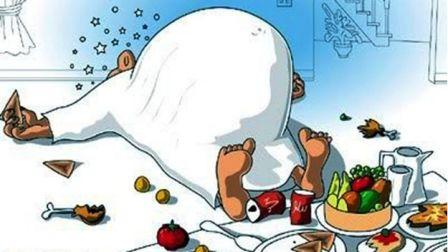Ramadan Again – Why do we fast?
Sawm (fasting), the fourth basic duty of Islam is another act of ‘Ibdah. All adult Muslims must fast from dawn to sunset every day of Ramadan, the ninth month of the Islamic calendar. This means abstaining from eating, drinking and conjugal relations during the hours of fasting. Travelers and the sick can defer fasting during Ramadan and make up for it later.
Benefits
Sawm develops self-control and helps us to overcome selfishness, greed, laziness and other faults. It is an annual training programme to refresh us for doing our duties for Allah, our Creator and sustainer. Sawm enables us to experience the pangs of hunger and thirst. We feel for ourselves what it is like to be hungry. We can begin to appreciate what it must be like for the poor and the unfortunate-the millions who go hungry every day. Fasting develops self-control, and teaches us not to think just about comfort. It also helps us to restrain our sexual passions. We must learn to control our appetite for food, love of comfort and sexual desires if we would like to be true servants of Allah.
Sawm helps us to remain truly obedient to Allah’s commands. That is why the Qur’an says: “O you who believe, fasting is prescribed for you as it was prescribed for those before you that you are expected to be truly obedient.” (2:183) A truly obedient Muslim is called a muttaqi(a person with taqwa) and his true obedience or piety-developed through sawm-is known as taqwa in Islam. Taqwa keeps a person away from sins and vices.
Ramadan is a month of Allah’s blessings (barakah), mercy (rahmah) forgiveness (maghfirah). It helps us to escape from the punishment of Hell in the life after death.
Fasting is only for Allah’s sake and he will give delightful and attractive rewards for this in the life after death.
The following acts will break the fast if they occur during the fasting hours:
- Deliberate eating or drinking.
- Anything entering the body through the nose or mouth this includes smoking or sniffing any powered substance.
- Having any conjugal relations (sex between husband and wife).
An injection in the muscle is allowed during fasting but not a nutritional injection. Unintentional eating or drinking due to forgetfulness or rinsing out the mouth or bathing and putting drops in the eye do not make the fast invalid.
A Muslim is expected to keep away from all bad actions during his fast. He should not tell a lie, break a promise or do any deceitful act, unbefitting of a Muslim. The very purpose of fasting is to enable a Muslim to control his passions, so that he becomes a person of good deeds and intentions. Anger-a common human weakness-can also be brought under control by fasting
In addition to the compulsory fasting in Ramadan, a Muslim may fast during other times of the year. These fast are treated as Sunnah.
Women are exempted from fasting during menstruation or post-childbirth bleeding. They are required to make up the days lost during this period at some other time of the year. A Muslim must not fast:
- On the day of Idul-fitr
- On the day of Idul-Adha
The Qur’an was first revealed in the month of Ramadan. There is a night in the month which is “Better than a thousand months” (97:3). THIS NIGHT IS CALLED Lailatul Qadr (night of power). According to Hadith this night occurs during the last ten days of Ramadan (most probably the odd-numbered nights). It is a night of great importance; we should worship as much as we can on this night.
An additional prayer known as Tarawih (20 rak’ahs or 8 rak’ahs) is offered during Ramadan after Isha’. This is a Sunnah prayer in which efforts are made to recite as much of the Qur’an as possible. In many mosques, the whole Qur’an is recited in Tarawih prayer. This prayer is generally offered in congregation. Those who cannot join a congregation should offer Tarawih at home. A pre-dawn meal known as Sahur is taken in Ramadan.
At the end of Ramadan Muslims celebrate IdulFitr a day of thanksgiving and happiness. It is one of the happy and joyful occasions for the Muslim community. On this day Muslims offer special prayers in congregation and thank Allah for His blessings and mercy.
BY Sheikh AY Kallay: aliup88@gmail.com 00232-76847100
Stay with Sierra Express Media, for your trusted place in news!
© 2017, https:. All rights reserved.






